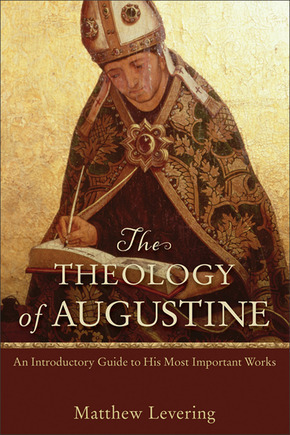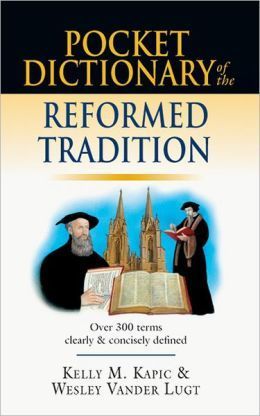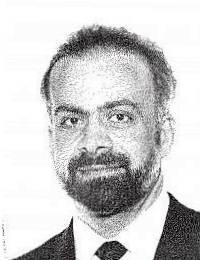Justin Taylor's Blog, page 157
May 20, 2013
Why the Universe Must Have Had a Beginning
Philosopher William Lane Craig shares the paradox of the Grand Hotel (a veridical paradox developed by mathematician David Hilbert in the 1920s):
Craig uses illustrations like this to show that actual infinities are impossible, supporting the second premise of his version of the Kalam Cosmological Argument:
Everything that begins to exist has a cause.
The universe began to exist.
Therefore, the universe has a cause.
Atheism and Its Scientific Pretensions: A Conversation with David Berlinski
David Berlinski, a philosopher and mathematician who is agnostic about God and does not speculate on the origins of life, is the author of The Devil’s Delusion: Atheism and its Scientific Pretensions (2011).
May 17, 2013
The Blessed Exchange
From a Puritan prayer in The Valley of Vision:
Christ was all anguish that I might be all joy,
cast off that I might be brought in,
trodden down as an enemy that I might be welcomed as a friend,
surrendered to hell’s worst that I might attain heaven’s best,
stripped that I might be clothed,
wounded that I might be healed,
athirst that I might drink,
tormented that I might be comforted,
made a shame that I might inherit glory,
entered darkness that I might have eternal light.
My Savior wept that all tears might be wiped from my eyes,
groaned that I might have endless song,
endured all pain that I might have unfading health,
bore a thorned crown that I might have a glory-diadem,
bowed his head that I might uplift mine,
experienced reproach that I might receive welcome,
closed his eyes in death that I might gaze on unclouded brightness,
expired that I might for ever live.
May 16, 2013
A New Defense of Amillennialism
 Sam Storms’ new book is Kingdom Come: The Amillennial Alternative (Christian Focus, 2013). It’s currently 50% off. You can read online for free his introduction and his first chapter, “The Hermeneutics of Eschatology: Five Foundational
Sam Storms’ new book is Kingdom Come: The Amillennial Alternative (Christian Focus, 2013). It’s currently 50% off. You can read online for free his introduction and his first chapter, “The Hermeneutics of Eschatology: Five Foundational
Principles for the Interpretation of Prophecy.”
Here are a few commendations of this work:
“This is a remarkable book which will surely become the standard bearer for Amillennialism for years to come. Storms is particularly adept (and gracious) at critiquing premillennial positions, especially dispensationalism. His interaction with postmillennialism and preterism is equally intelligent and insightful. This is a book I will return to many times in my personal study and in pastoral ministry. Storms has given us a model for accessible, relevant, warm-hearted scholarship in service of the church.”
—Kevin DeYoung, Senior Pastor, University Reformed Church, East Lansing, Michigan
“If Christians in the past were guilty of obsessing too much over the end times, evangelicals today may face the opposite problem of caring too little. The writings of Sam Storms are exactly what we need: faithful theology and careful exegesis served with a pastoral spirit and reverent worship. In these pages you will find Dr. Storms’ mature reflections on the end times, honed over decades in the classroom and in the church. There is something in here to challenge and to encourage all of us, no matter our persuasion. I pray this book will help others in the same way it has helped me.”
—Justin Taylor, author and blogger, “Between Two Worlds”
“Evangelicals continue to be divided over eschatology, and such divisions will likely continue until the eschaton. For some, premillennialism is virtually equivalent to orthodoxy. Sam Storms challenges such a premise with a vigorous defense of amillennialism. Storms marshals exegetical and theological arguments in defense of his view in this wide-ranging work. Even those who remain unconvinced will need to reckon with the powerful case made for an amillennial reading. The author calls us afresh to be Bereans who are summoned to search the scriptures to see if these things are so.”
—Thomas R. Schreiner, James Buchanan Harrison Professor of New Testament Interpretation, The Southern Baptist Theological Seminary, Louisville, Kentucky
Why Good Theologians Get to Know Augustine
 Matthew Levering, in his celebrated new introduction to The Theology of Augustine using his seven key works, writes:
Matthew Levering, in his celebrated new introduction to The Theology of Augustine using his seven key works, writes:
Augustine wrote over one hundred treatises, countless letters and sermons, and more than five million words in all. Although few scholars can become acquainted with all of his writings, there are certain pivotal works that one simply must know if one is interested in the development of Christian theology, biblical exegesis, and Western civilization. . . .
In order to engage later Catholic and Protestant theology—and in certain cases Eastern Orthodox theology—one must know these works.
Even more important, one must read these works to gain an appreciation for why such a great thinker gave his life to the realities proclaimed by Christian Scripture.
And, lastly, it is by reading these works that one will be able to evaluate the development and present intellectual impasse of Western civilization.
Augustine speaks as powerfully today as he did sixteen hundred years ago.
Levering then explains the seven works he has chosen. I’ve added links below to the translations from The Works of Saint Augustine: A Translation for the 21st Century (New City Press), an ongoing project to render the complete works of Augustine in English.
My task in this book is to present these seven pivotal works of Augustine. Here we find the themes that Augustine plumbed most deeply: how to interpret Christian Scripture, the relationship between the Old and New Testaments, the unity of the Church in charity, God’s eternity and simplicity, grace and predestination, conversion, the meaning of history, the two “cities,” the cross and resurrection of Jesus Christ, and the divine Trinity.
The first two works, On Christian Doctrine and Answer to Faustus, a Manichean, set forth the central components of Augustine’s theology of Scripture and of scriptural interpretation.
The next two works, Homilies on the First Epistle of John and On the Predestination of the Saints, explore the grace of the Holy Spirit and the charity that unites the Body of Christ.
The final three works, Confessions, City of God, and On the Trinity, form a triptych that shows how human life (individual and communal) is an ascent to full participation in the life of the Triune God, who descends in Christ and the Holy Spirit to make possible our sharing in the divine life.
You can read Dr. Levering introduction and his first chapter (about On Christian Doctrine) here.
Meet Douglas Karpen: The New Kermit Gosnell
Douglas Karpen of Aaron's Women's Clinic Texas Ambulatory Surgical Center (Aaron's Women's Clinic)
Evidence is emerging of another abortion mill where illegal abortions are performed and where full-term babies are regularly born alive and brutally murdered. This one is run by Dr. Douglas Karpen, who appears to be a doctor in good standing with the state of Texas.The Texas Department of State Health Services plan to investigate.
Three women have come forward to testify about what they witnessed there as workers.
Please be aware that the descriptions are very graphic and viewer discretion is highly advised:
May 15, 2013
The Original Text of the Bible Even Though We Lack the Original Manuscripts
Michael Kruger has a helpful post at TGC this morning making a helpful distinction about the relialibity of the original text of Scripture:
But the original text is not a physical object. The autographs contain the original text, but the original text can exist without them. A text can be preserved in other ways. One such way is that the original text can be preserved in a multiplicity of manuscripts. In other words, even though a single surviving manuscript might not contain (all of) the original text, the original text could be accessible to us across a wide range of manuscripts.
Preserving the original text across multiple manuscripts, however, could only happen if there were enough of these manuscripts to give us assurance that the original text was preserved (somewhere) in them. Providentially, when it comes to the quantity of manuscripts, the New Testament is in a class all its own. Although the exact count is always changing, currently we possess more than 5,500 manuscripts of the New Testament in Greek alone. No other document of antiquity even comes close. [my emphasis]
You can read the whole thing here.
On this latter point, Dan Wallace once explained to me that:
The average classical author’s literary remains number no more than twenty copies. We have more than 1,000 times the manuscript data for the NT than we do for the average Greco-Roman author. Not only this, but the extant manuscripts of the average classical author are no earlier than 500 years after the time he wrote. For the NT, we are waiting mere decades for surviving copies. The very best classical author in terms of extant copies is Homer: manuscripts of Homer number less than 2,400, compared to the NT manuscripts that are approximately ten times that amount.
Here’s a chart adapted from something Dr. Wallace compiled:
Histories
Years
Date of Oldest Manuscripts
Number of Surviving Manuscripts
Livy
59 B.C.-A.D. 17
4th century A.D. (300s)
27
Tacitus
A.D. 56-120
9th century A.D. (800s)
3
Suetonius
A.D. 69-140
9th century A.D. (800s)
200+
Thucydides
460-400 B.C.
1st century A.D.
20
Herodotus
484-425 B.C.
1st century A.D.
75
New Testament
c. 5 B.C.-A.D. 90
c. 100-150
c. 5,700 (counting only Greek manuscripts) (+ more than 10,000 in Latin, + more than a million quotations from the church fathers, etc.
R. Laird Harris once offered an illustration to show that “the doctrine of verbal inspiration is worthwhile even though the originals have perished”:
Suppose we wish to measure the length of a certain pencil. With a tape measure we measure it at 6 ½ inches. A more carefully made office ruler indicates 6 9/16 inches. Checking it with an engineer’s scale, we find it to be slightly more than 6.58 inches. Careful measurement with a steel scale under laboratory conditions reveals it to be 6.577 inches. Not satisfied, we send the pencil to Washington, where master gauges indicate a length of 6.5774 inches. The master gauges themselves are checked against the standard United States yard marked on a platinum bar preserved in Washington.
Now, suppose that we should read in the newspapers that a clever criminal had run off with the platinum bar and melted it down for the precious metal. As a matter of fact, this once happened to Britain’s standard yard! What difference would this make to us? Very little. None of us has ever seen the platinum bar. Many of us perhaps never realized it existed. Yet we blithely use tape measures, rulers, scales, and similar measuring devices. These approximate measures derive their value from their being dependent on more accurate gauges. But even the approximate has tremendous value—if it has had a true standard behind it. (R. Laird Harris, Inspiration and Canonicity of the Bible, rev. ed. [Grand Rapids, MI: Zondervan, 1969], pp. 88-89)
For more reflections on this, See Greg Bahnsen’s fine essay on “The Inerrancy of the Autographa.”
May 14, 2013
Pocket Dictionary of the Reformed Tradition
 Encouragement to pick up Pocket Dictionary of the Reformed Tradition by Kelly Kapic and Wesley Vander Lugt, published by IVP:
Encouragement to pick up Pocket Dictionary of the Reformed Tradition by Kelly Kapic and Wesley Vander Lugt, published by IVP:
“Kapic and Vander Lugt are to be commended for this fantastic resource to advance the learning of individuals and the awareness of the entire Reformed church regarding its foundations. The concise entries provide laypeople, as well as advanced scholars, with quick reference and remarkable insight regarding key aspects of our history and thought that easily escape memory or get lost in general impression.”
—Bryan Chapell, chancellor, Covenant Theological Seminary
“Only well-informed teachers can summarize large topics in a way that is both accurate and accessible. That is precisely what the authors of this pocket dictionary have achieved.”
—Michael Horton, J. Gresham Machen Professor of Systematic Theology & Apologetics, Westminster Seminary California
“For students of theology who have no home in a confessional tradition, this book will prove a valuable resource. Like the best travel guides, it orients newcomers to a strange new land (e.g., Calvinism, covenant theology), its leading lights (e.g., William Ames, Herman Bavinck, Karl Barth), their beliefs (e.g., common grace, infralapsarianism, sola scriptura) and customs (e.g., mortification, paedobaptism, worship), thereby enabling readers to understand and speak the language of its Reformed inhabitants. It may even prompt strangers to the tradition to become sojourners. And even when it does not, readers will find the book’s value to be disproportionate to its small size.”
—Kevin J. Vanhoozer, Trinity Evangelical Divinity School
Kermit Gosnell Has the Right to Be the Most Surprised Man in America Right Now
In statements issued immediately after the Gosnell verdict, the slave-dealers’ lobby—Planned Parenthood and NARAL Pro-Choice America—reacted as though the real problem with Gosnell is that he preyed on women and endangered their health. To be sure, he did just that. But Gosnell victimized these women as the logical extension of these groups’ moral reasoning and public policy goals, which they have advocated for decades. They have devoted themselves to teaching American women that their unborn children simply don’t count in any moral calculus, and horrors like Gosnell’s clinic are the fruit of their diligent work.
There is no alchemy, no magic spell that can tell us how to distinguish, in terms of their moral claim on us, between the children aborted in Gosnell’s Philadelphia abattoir and the ones who were delivered and then killed. In certain respects, Kermit Gosnell has a right to be the most surprised man in America right now. We, on the other hand, who have not wanted to notice the slave-dealers in our midst, have no such excuse.
Read the whole thing here, where Franck explains the slave-dealer analogy by using a quote from Lincoln.
The Five Authors Who Have Most Influenced J. I. Packer
When asked, here are the first five books that come to mind for J. I. Packer:
John Calvin, Institutes of the Christian Religion (2 vols.)
J. C. Ryle, Holiness
John Bunyan, The Pilgrim’s Progress
Richard Baxter, The Reformed Pastor (+ others)
John Owen, Indwelling Sin and The Mortification of Sin (+ his books on Justification, The Holy Spirit, and The Death of Death in the Death of Christ ).
Justin Taylor's Blog
- Justin Taylor's profile
- 44 followers





